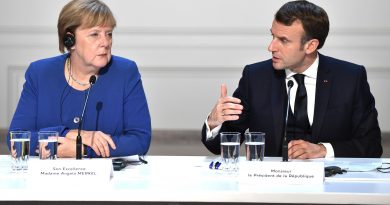French Parties Seek to Capitalize on Hollande’s Troubles as Presidential Election Nears
By Matthew Schaller
Staff Writer
With more than 3.2 million ballots counted in France’s November 20 presidential primary, former president Nicolas Sarkozy accepted defeat. He acknowledged that he did not win over the majority of voters and respects the outcome of the elections, he said in a speech at his campaign headquarters in Paris.
Mr. Sarkozy is now hedging his bets on former Prime Minister Francois Fillon, who received 44 percent of the vote, to lead the charge to the November 27 runoff, as candidates on the left continue to be bogged down by Francois Hollande’s troubled presidency.
However, with the United States recovering from an extremely divisive election season and Donald Trump emerging victorious, it remains to be seen what role this will play on the wave of populism that has spread across not only France, but Europe as a whole.
Marine Le Pen, the leader of France’s far-right National Party, is believed by many to be a possible front-runner in the country’s election next year. According to CNN, she believes that Trump’s victory is “a sign of hope for those who those against excessive globalization.
The Washington Post highlights the various ways in which the candidates hope to go about dealing with the issues that have dogged Mr. Hollande’s presidency.
On the political front, Mr. Sarkozy called for a similar hardline stance on immigration to that of Le Pen and several other candidates. He also pledged to ban Muslim women from wearing headscarves in public places.
More liberal approaches have been discussed, with Mr. Fillon promising to support the creation of a quota system for immigrants. Another former prime minister, Alain Juppe, supports greater respect for diversity and religious freedom.
On the economic front, all the candidates have called for a reduction in taxes and adjusting the amount of time that employees work in a given week from the standard 35 hours.
According to Express, with the first round of the primary being completed on November 20, the remaining candidates are now focused on the second round, to be held on November 27. This will culminate in two rounds of elections to be held in April and May of next year.
Against this turbulent backdrop, German Chancellor Angela Merkel has announced her plans for re-election in next year’s federal elections.
CNN reports the significance of this decision, as Germany is already facing uncertainty. A wave of instability has rocked the continent, as a result of the Brexit vote in Britain, the increased role that populist parties are playing in several European countries, and the recent elections in the United States.
Speaking at a news conference in Berlin, Merkel said that she expects criticism. She also acknowledged the high tensions within the European Union, adding that the situation must be sorted out.
This wave of uncertainty, nevertheless, presents a wonderful opportunity for her. CNN political commentator Alice Stewart states that Merkel‘s controversial refugee policy and the recent Brexit could help her to show stability.

